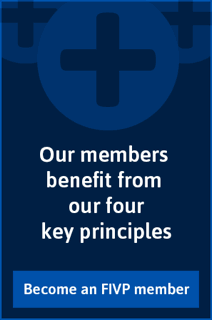The apprenticeship programme is a government funded scheme that offers individuals, from the age of 16, the opportunity to gain knowledge and experience in a specific industry or field. The scheme provides an alternative to university or other forms of higher education, allowing candidates to earn a salary whilst learning the tricks of the trade, on the job. Apprenticeships provide businesses with devoted, hard-working personnel whilst providing candidates with a nationally recognised qualification and the skills to develop their own career.
In 2012, a government-commissioned enquiry revealed that the apprenticeship structure was lacking in a number of areas. It was suggested that improvements be made to the programme, making it more demanding and in-line with the needs of the employer. From this, the Trailblazer Apprenticeship was born, stipulating new standards that aim to:
- Increase the quality of apprenticeships. Apprentices will need to demonstrate their competence through rigorous assessment. This will focus on the end of the apprenticeship to ensure that the apprentice is ready to progress
- Put employers in the driving seat. In future, apprenticeships will be based on standards designed by employers
- Simplify the system. The new employer-designed standards will be short and easy to understand. They will describe the skills and knowledge that an individual needs to be fully competent in an occupation
- Give employers purchasing power. Routing government funding for the external training of apprentices via employers, to empower businesses to act as customers, driving up the quality and relevance of such training.
Following the new standards proposal, an employer group was formulated to develop the criteria. The employer-lead group includes representatives from awarding bodies, training centres, the FIVP and a variety of employers. The group has met on a number of occasions to discuss the veterinary nursing apprenticeship, outlining the knowledge, skills and behaviours (KSBs) expected by employers.
In the latest meeting, the group took a vote on the entry requirements for candidates looking to pursue a veterinary nursing role. The current standards stipulate that students require a C grade or above in five GCSEs (or equivalent), including English and mathematics. The standards presently allow students to complete their English and maths GCSEs whilst taking part in the apprenticeship.
FIVP Chairman Ian Skates represented the views held by many independent practices, in support of the current format of permitting students to gain the necessary qualifications whilst partaking in an apprenticeship. He presented the notion that it encompassed a wider range of potential candidates and allowed flexibility for practices recruiting apprentices. Despite this, the group voted in favour of students attaining at least a C grade in both GCSE’s (or equivalent), prior to enrolling in a veterinary nursing apprenticeship. The comments in support of this proposal suggested that ‘more complex concepts and calculations were expected of Veterinary Nurse’s now, so academic ability needed to be established at the outset.’
The group went on to discuss apprenticeship duration, as well as the importance of conduct, not just at work, but also within the community. With regard to duration, the majority of the group were in favour of a typical 30–36 month course. Although the time is flexible to the needs of the student, the longer period allows students the necessary time to complete the course without added pressure and undue stress. With regards to behaviour, it was agreed that candidates should show the ability to accept and act on constructive advice and guidance, as well as show a proactive commitment to seek clarification and recognise their own limitations. These amendments were added to form part of the behaviour standards of the apprenticeship and can be viewed alongside the knowledge and skills standards, documented below.
The Apprenticeship Trailblazer Group meets again on 20th October.
Requirements: Knowledge, Skills and Behaviour (KSBs)
| Knowledge | The veterinary nurse will require a comprehensive understanding of: |
| Legislative compliance and regulatory requirements | The RCVS Day One Competences for Veterinary Nurses The need to be fully conversant with and abide by the RCVS Code of Professional Conduct and its associated guidance Organisational requirements and legislation related to a veterinary business and animal welfare The aims of effective health and safety within a veterinary practice |
| Comparative functional anatomy for veterinary nursing practice | Anatomy and physiology in relation to veterinary nursing practice Normal form and function of body systems in a range of species The relationship between normal form and function and the effects of disorder in disease processes and the consequent nursing requirements of sick animals |
| Infection control in veterinary practice | The role of infection in animal and human health The principles of disease transmission in veterinary practice The principles of disinfection and sterilisation Maintaining personal hygiene especially in relation to cross-infection The principles of infection monitoring and control. |
| Materials, equipment and resources | Commonly used instruments and equipment along with their uses and applications Correct usage, handling, storage, maintenance and disposal of materials and equipment Stock maintenance to include veterinary consumables and pharmaceuticals The principles of record keeping |
| Professional registration | The legal framework for veterinary nursing practice Accountability of veterinary nurses Application of ethical principles The principles of consent to veterinary treatment Legal and ethical duties to clients, colleagues and animals |
| Nursing Care | The essentials of veterinary nursing care for hospitalised animals The principles of peri-operative veterinary nursing support including Anaesthesia The principles of veterinary nursing support The principles of pharmacology and administration of medication |
| Emergency and critical care | The principles of first aid How to support emergency veterinary care Nursing requirements of critically ill or injured animals Species specific nursing requirements for patients requiring intensive care Special intensive nursing care techniques |
| Diagnostic techniques for veterinary nurses | The principles of radiography and adjuvant imaging techniques Taking and processing radiographs The function and use of laboratory equipment How to collect, prepare and test pathological samples How to prepare specimens for transportation |
| Communication | The dynamics of communication and methods of communicating Factors affecting working relationships with clients and within the veterinary team The principles of customer service |
| Self-Management | The principles relating to evidence based approaches to learning Recognising and working within personal and professional limitations Seeking and using feedback and advice where appropriate |
| Skill | The veterinary nurse will comply with RCVS Day One Skills for veterinary nurses and be able to: |
| Legislation affecting practice | Comply with health and safety legislation Comply with data protection legislation Follow relevant operating procedures and manufacturers guidelines when using equipment, materials and pharmaceutical products |
| Communication | Communicate effectively using a variety of methods Create accurate written communication Communicate effectively expressing appropriate empathy and sympathy Conduct nursing clinics |
| Clinical skills | Prepare and maintain all areas of the veterinary practice at all times Prepare records, equipment and resources Work in a safe and effective manner Manage and perform effective infection control procedures Provide nursing support as required Prepare, use, maintain, store and dispose equipment and materials effectively |
| Self-Management | Manage own performance and development; take measures to improve performance and competence Engage in continued professional and personal development Use professional standards of practice to self-assess performance |
| Professionalism | Practice in accordance with the RCVS Code of Professional Conduct |
| Behaviour | The veterinary nurse will abide by the RCVS Code of Professional Conduct for veterinary nurses and demonstrate: |
| Work within legal and ethical limits | The ability to conform to approved procedures The application of ethical issues to their work in veterinary practice |
| Professional accountability | Reliability, working to high standards The ability to adjust to change Ability to take responsibility Effective time management and self management Development of good working relationships Appropriate Communication |
| Responsibility | Taking responsibility for own actions Maintaining a professional appearance and following PPE protocols Responsibility for own development and contribute to day-to-day decisions Good application of knowledge and skills, awareness of areas to improve Ability to plan ahead Well organised work Confidence in undertaking tasks, able to use own initiative |
| Reflection and self awareness | A commitment to learning and professional development Using professional standards of practice to self-assess performance Ability to accept and act on constructive advice and guidance, a proactive commitment to seek clarification and recognises own limitations |


